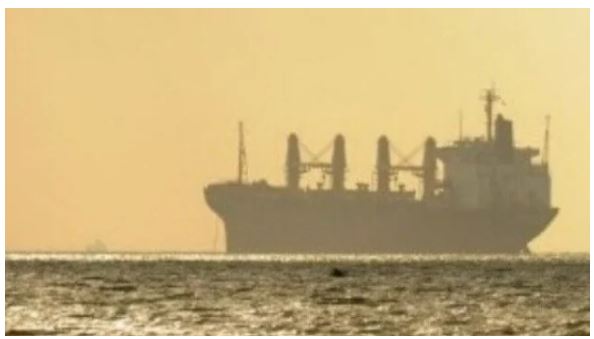search the site
Reports claim Houthis make Red Sea vessel attacks a $2B business

Stuart Chirls
Houthi rebels are extorting as much as $2 billion a year from shipping lines in exchange for not attacking their vessels in the Red Sea and Gulf of Aden, according to a new study.
The unreleased study based on research by a panel of Yemen experts for the United Nations Security Council found that the Houthis were pulling in $180 million per month in the “tolling” protection racket, one published report said, though the panel could not independently verify that number.
Since November 2023, the Houthis have attacked commercial shipping in the Red Sea — a critical route for ships sailing between Asia, the Mediterranean and the east coast of North America — with drones, missiles and watercraft, killing four people and sinking two vessels. The Red Sea provides access to the Suez Canal to the north and the Gulf of Aden to the south.
The Houthis claim to only block shipping from Israel-connected countries, but the study found attacks on vessels from Houthi-backing countries, including Iran, according to another news article.
Most major shipping companies have diverted containerships and tanker vessels away from the region and on to longer voyages via the Cape of Good Hope around the Horn of Africa. That route adds 10-14 days to the duration of a voyage, adding delays and costs for shippers. But a steady flow of local and region-based vessels continue to ply the Red Sea daily.
Among major carriers, only CMA CGM of France continues to operate scheduled rotations through the Red Sea. The company did not respond to an email request for comment.
The panel found that the Houthis carried out more than 130 attacks on merchant ships from November 2023 through the end of July 2024.
The panel wrote that “[t]he group’s shift to actions at sea increased their influence in the region. Such a scale of attacks, using weapon systems on civilian vessels, had never occurred since the Second World War,” according to the news report.
The U.N. study found that the protection revenue is helping to finance and expand the Houthis’ operations in the region. This extended to cooperation with al-Qaida, Hezbollah and other terrorist groups, as well as pirates in Somalia and links to Iran’s military.
At the same time, the Houthis have built up a far-ranging network for money-laundering, recruitment, smuggling and moving arms.
“The scale, nature and extent of transfers of diverse military materiel and technology provided to the Houthis from external sources, including financial support and training of its combatants, is unprecedented,” the study found.
source : freightwaves


















